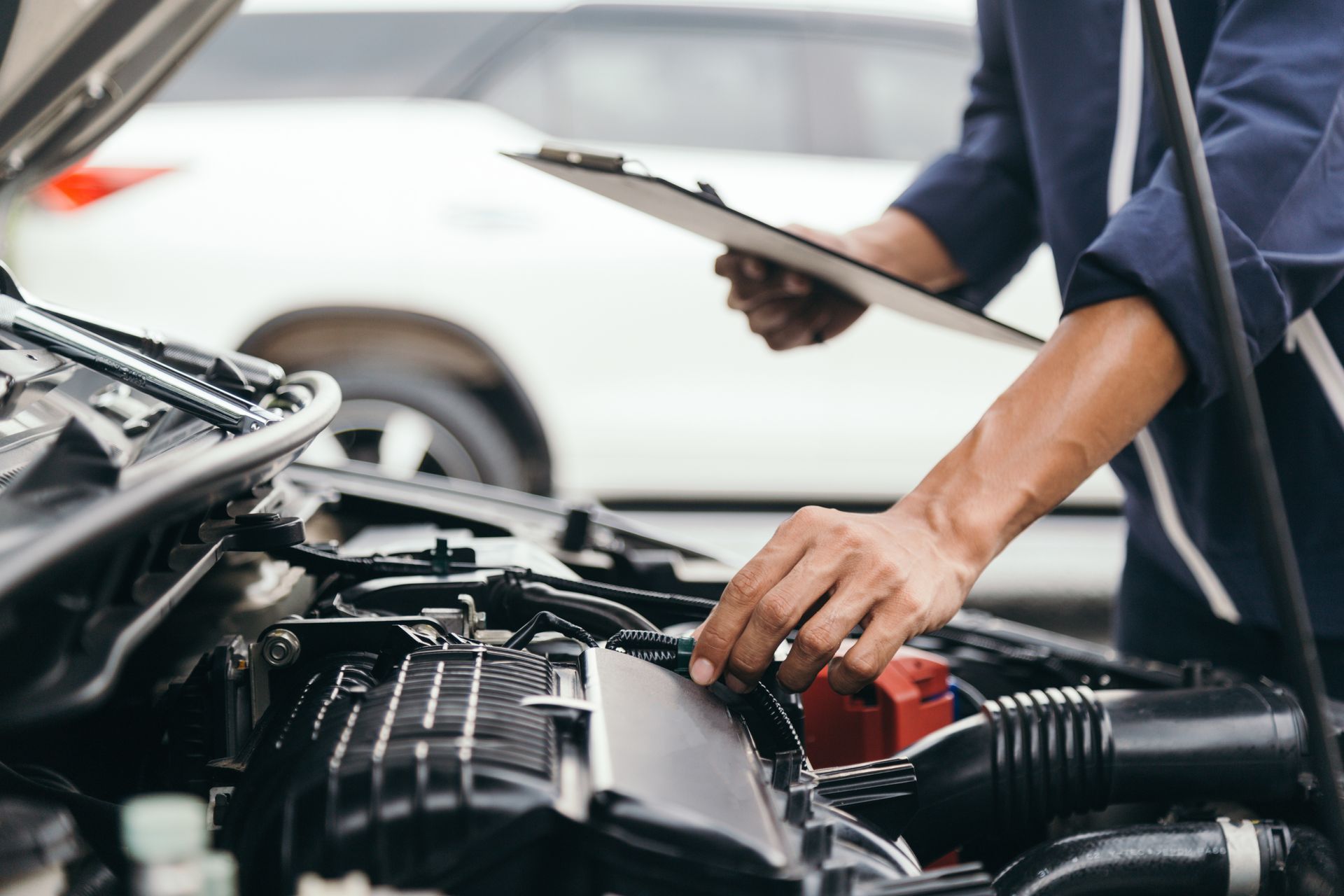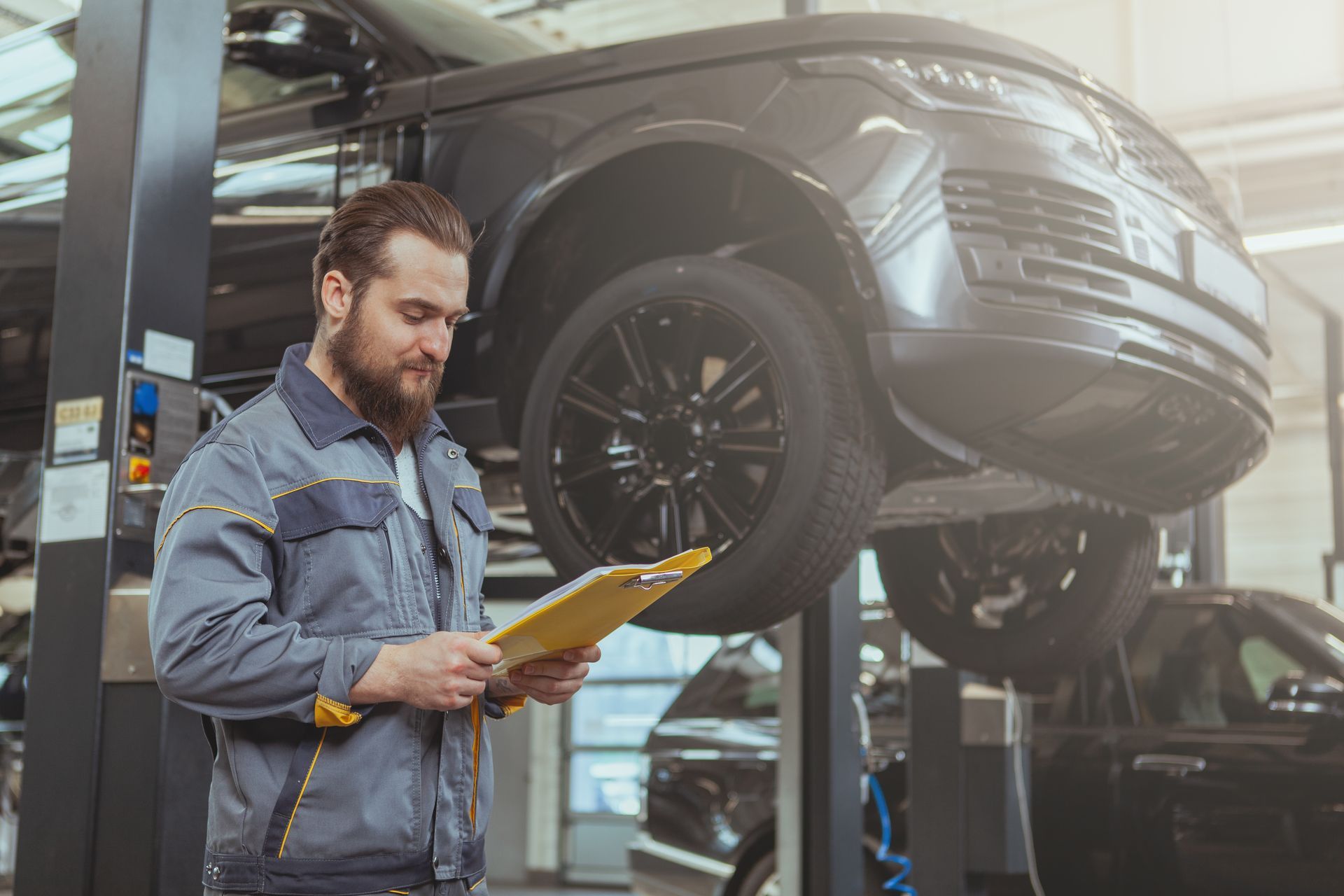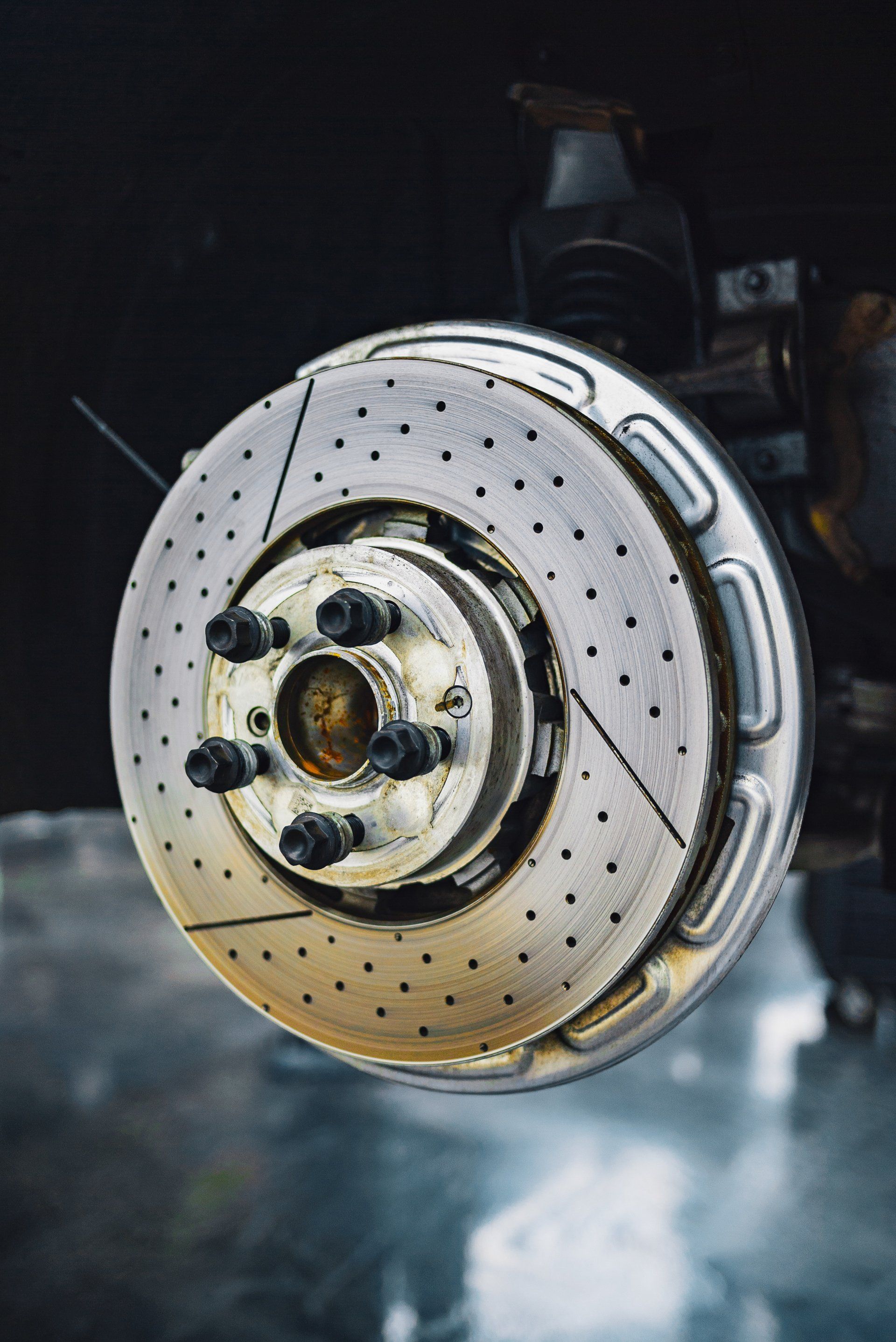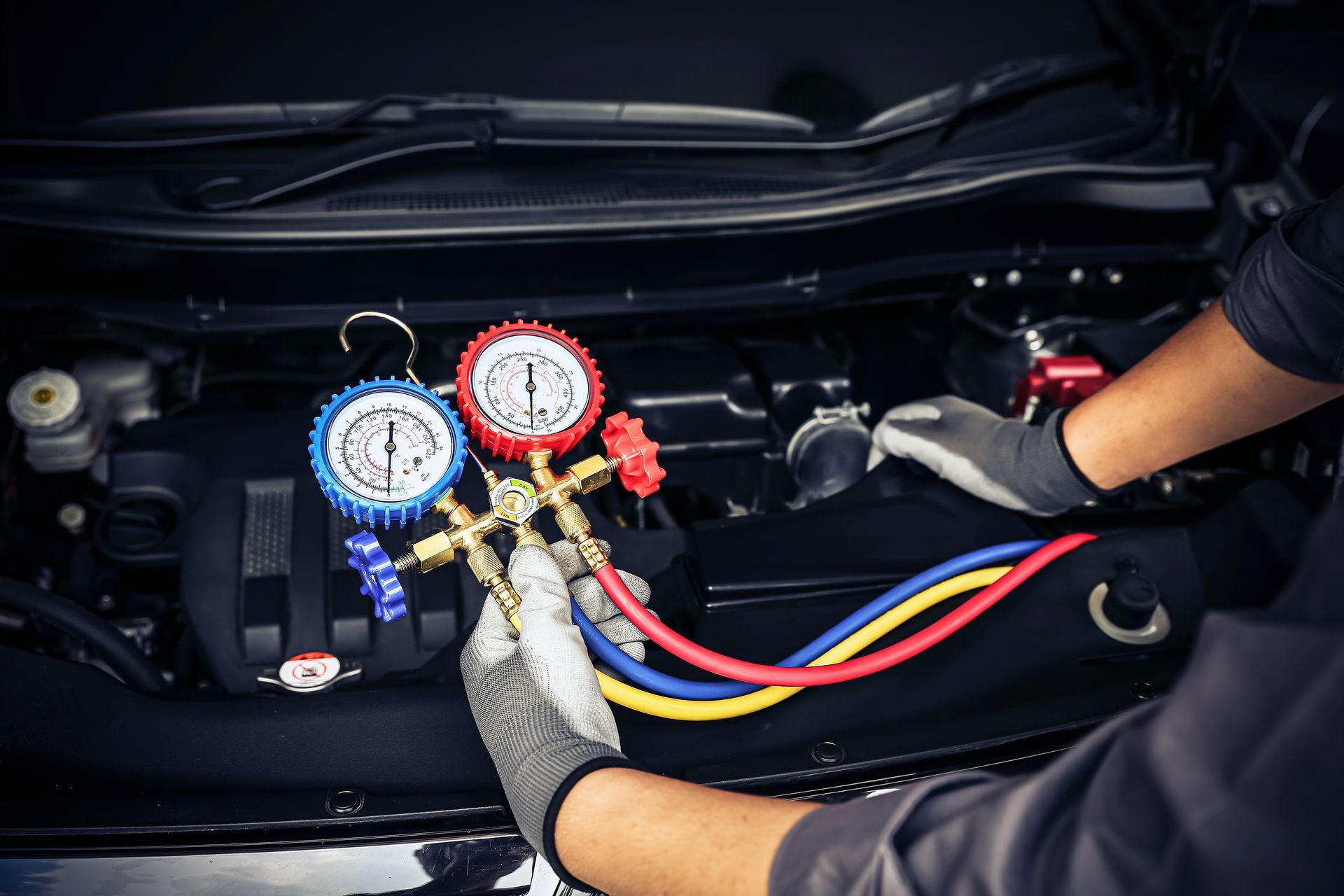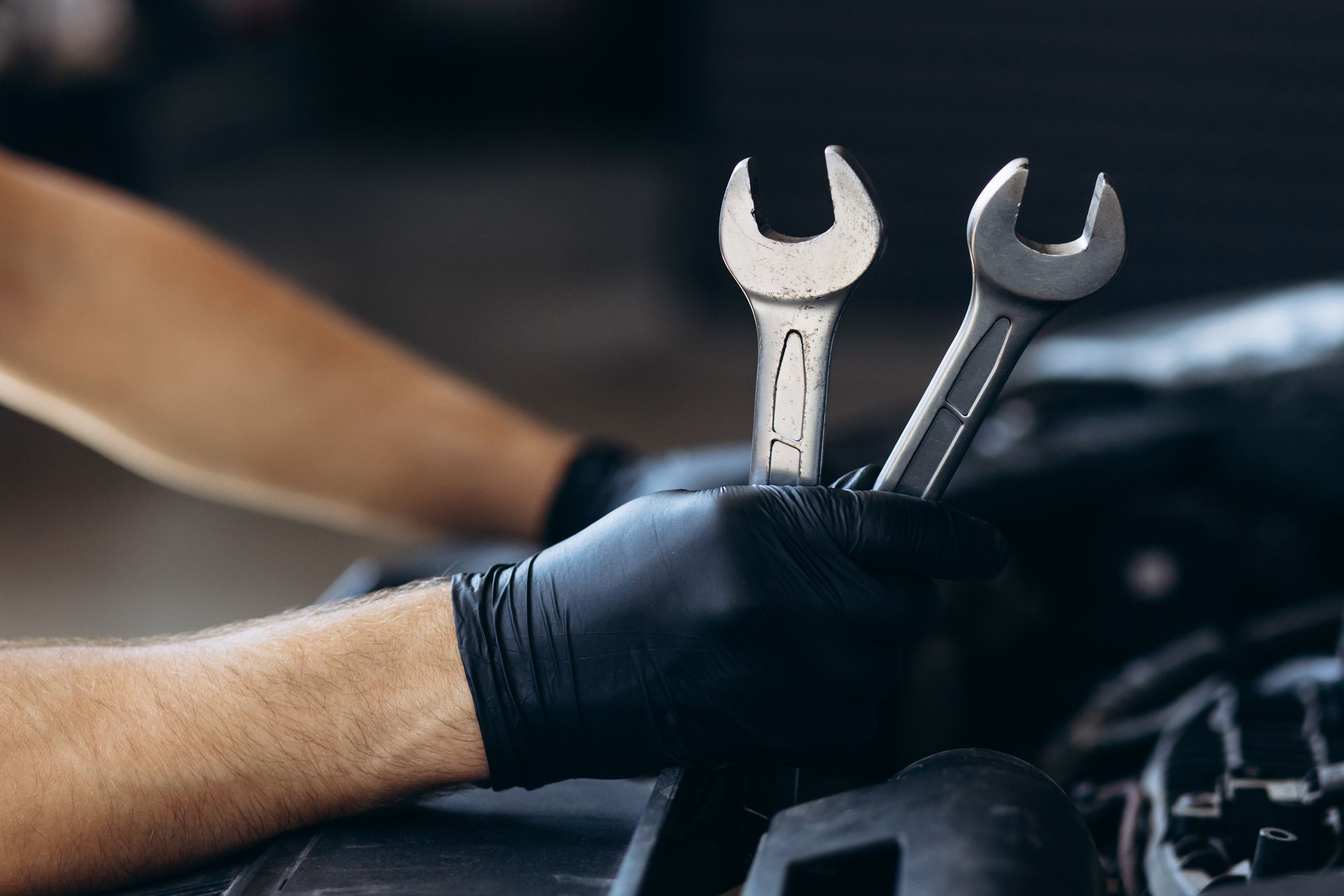Our Blog
Discover top-notch A/C service at Weldon's Auto Center in Ada, OK. Ensure your vehicle's comfort with expert care. Schedule an online appointment now!
Discover expert tips on automotive preventive maintenance at Weldon's Auto Center in Ada, OK. Ensure safety and longevity for your vehicle. Visit us today!
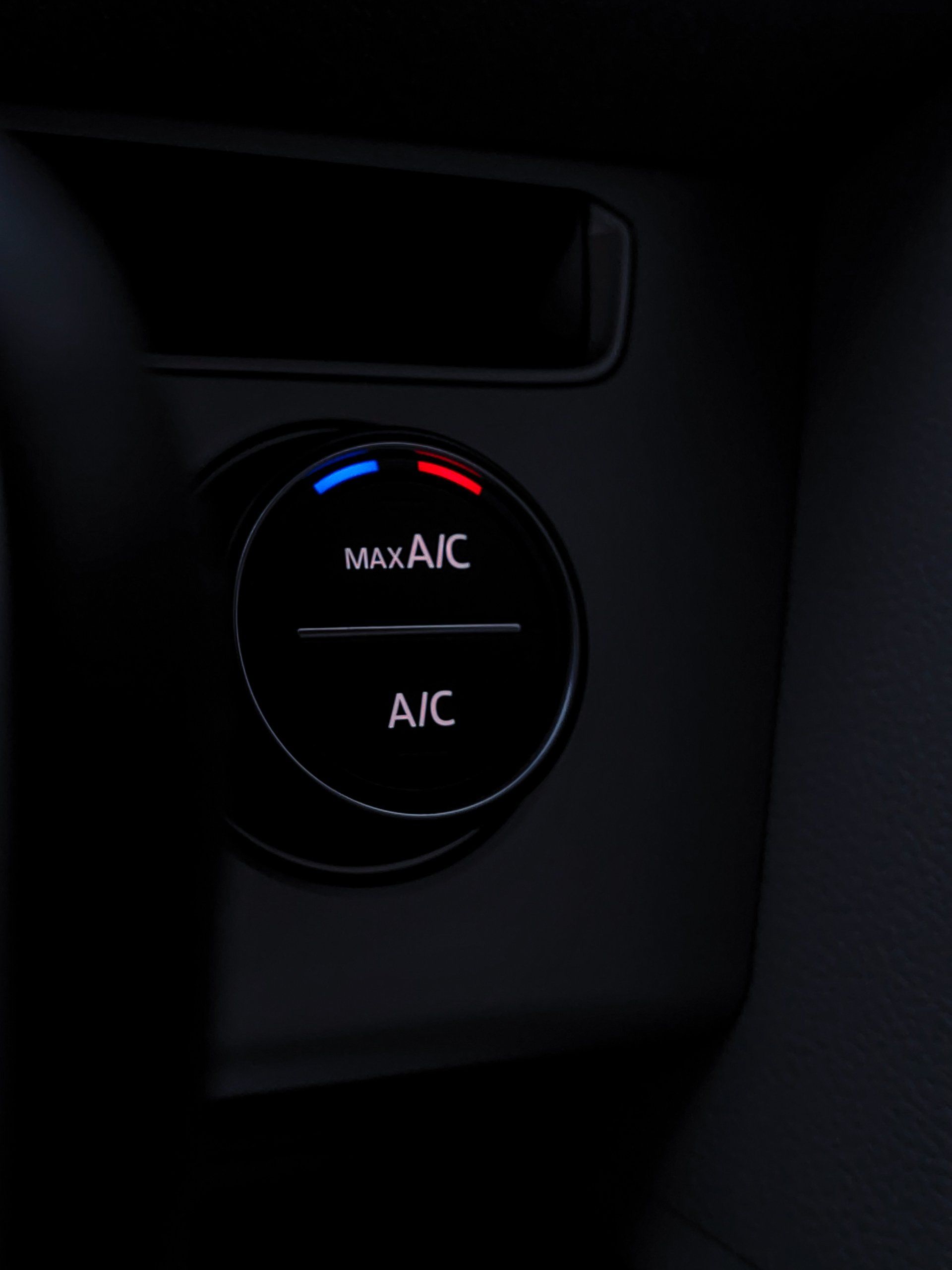
Welcome to Weldon's Auto Center, your trusted source for automotive care in Ada, Oklahoma! As the temperatures start to climb and the heat waves roll in, there's no better time to ensure your vehicle's air conditioning system is operating at peak efficiency. In this comprehensive guide, we're diving deep into the world of automotive A/C repair, sharing our expertise to help you beat the Ada heat with confidence. Understanding Your Vehicle’s A/C System Before we delve into common A/C issues and solutions, let's break down how your vehicle’s air conditioning system works. In essence, your car’s A/C system operates by compressing and expanding refrigerant, which, in turn, cools the air before it’s blown into the cabin. The system comprises several key components: the compressor, condenser, expansion valve, and evaporator. When functioning correctly, this system provides a comfortable, cool environment inside your vehicle, making those hot summer drives around Ada, OK, much more bearable. However, when something goes awry, it can turn your comfortable commute into a sweltering ordeal. Common A/C Problems and How We Fix Them at Weldon's Auto Center At Weldon's Auto Center, we've seen it all when it comes to A/C issues. Here are some common problems and how our team of experienced technicians tackles them: 1. Refrigerant Leaks One of the most frequent causes of a malfunctioning A/C system is a refrigerant leak. This can occur due to wear and tear on the hoses and seals. At Weldon's Auto Center, we use advanced diagnostic tools to detect leaks and repair them, ensuring your A/C system is recharged and ready to provide maximum cooling efficiency. 2. Faulty Compressor The compressor is the heart of your vehicle’s A/C system. If your A/C is blowing warm air or not working at all, a faulty compressor could be to blame. Our technicians at Weldon's Auto Center in Ada, OK, can assess your compressor’s condition and recommend the best course of action, whether it's a repair or a full replacement. 3. Clogged Condenser The condenser cools the refrigerant after compression. However, it can become clogged with debris and dirt, impairing its ability to cool effectively. Our team is adept at cleaning and repairing condensers, ensuring that air flows freely and your car stays cool, even on the hottest Ada days. 4. Electrical Issues Modern vehicles come with complex electrical systems that can affect your A/C. At Weldon's Auto Center, we specialize in diagnosing and fixing electrical issues, from blown fuses to malfunctioning sensors, to keep your car's A/C running smoothly. DIY Tips for Maintaining Your Car’s A/C System While professional maintenance is key, there are several things you can do to keep your car’s A/C system in top condition: Run It Regularly : Even in cooler months, running your A/C for a few minutes weekly can prevent seals from drying out and cracking. Keep It Clean : Regularly check the area around the air intake (typically located at the base of the windshield) and remove any leaves or debris. Schedule Regular Check-ups : Bringing your vehicle to Weldon's Auto Center for regular check-ups can prevent minor issues from turning into major headaches. Why Choose Weldon's Auto Center for Your A/C Repair Needs? At Weldon's Auto Center, we pride ourselves on our commitment to customer service and automotive excellence. Our team of certified technicians brings years of experience and a passion for automotive care to every repair and maintenance job. Located conveniently in Ada, OK, we're dedicated to keeping our community cool and comfortable on the road. Our Customer-Centric Approach We believe in transparent service and open communication. When you bring your vehicle to us, we'll walk you through the diagnostic process, explain your options, and provide clear, upfront pricing. Our goal is to empower you to make informed decisions about your car’s care. State-of-the-Art Diagnostics and Repairs Using the latest diagnostic tools and repair techniques, we ensure that your vehicle’s A/C system is fixed right the first time. Whether you're dealing with a complex electrical issue or a straightforward refrigerant recharge, we've got the tools and the talent to get the job done. Your Comfort and Convenience Matter We know that auto repairs can be disruptive. That’s why we offer convenient scheduling, a comfortable waiting area, and fast, efficient service to get you back on the road as quickly as possible. Ready to Beat the Heat? Don’t let a malfunctioning A/C system ruin your summer driving experience. Whether you're dealing with an underperforming A/C, suspect a refrigerant leak, or just want to ensure your system is ready for the heat, Weldon's Auto Center is here to help.

Winter can be a challenging season for vehicle owners due to precipitation, low temperatures, and unpredictable conditions. For this reason, preventive vehicle maintenance is paramount to ensuring your safety on the road. Here are five simple tips to keep your vehicle running smoothly this holiday season. 5 Vehicle Maintenance Tips for the Winter 1. Replace Your Wiper Blades Did you know that even the highest-quality wiper blades can start to lose their effectiveness even after just six months ? Additionally, as the weather gets colder, it can impact your wipers in a few ways. You might notice that the wiper blades become bent or the wiper arms start to skip. Getting a new set of wiper blades can be a smart move to ensure your peace of mind as the temperatures start to drop. 2. Check Your Battery Cold conditions may shorten the life of a vehicle battery by up to 50% . Reduced capacity and higher drain from starting motors and accessories are some primary contributing factors that lead to batteries dying in the winter. Inspect your battery terminals and wires for cracks, loose connections, and any debris or residue to make sure your battery is ready to go for the winter. And, as part of your scheduled vehicle maintenance, have the battery checked and replaced if necessary. 3. Warm Up Your Vehicle Ensure optimal performance of your vehicle during the winter by avoiding extended periods of inactivity. To ensure your engine stays warm, it’s a good idea to run it for brief intervals. However, it is important to avoid warming up your vehicle in your garage, even if the door is open. Warming up your car in the garage can expose you to carbon monoxide poisoning. Here are some precautions you can take: Before you start your vehicle, make sure to open the garage door. Start the vehicle and carefully reverse it out of the garage right away. Ventilate the space by leaving the garage door open. 4. Check Your Tires Tread depth plays a significant role in determining how well tires perform. As tires age, their tread gradually wears down, which can lead to decreased traction on wet, cold, or frosted surfaces. To make sure your driving experience is at its best and, most importantly, to keep you safe on the road, vehicle maintenance with your tires is crucial. If you haven’t heard of this timeless trick before, here’s a handy way to check your tire tread: simply take a penny and insert it into the groove of your tire. If you can clearly see the entire head of Lincoln on a penny when you insert it into your tire’s tread, then your tread depth is less than 2/32”, and it’s time to consider getting new tires. 5. Change Your Oil and Check Other Fluids Some changes may occur in your car’s fluids when the temperature drops low enough. Antifreeze, transmission fluid, and motor oil are just a few examples of fluids that may thicken and move more slowly in colder temperatures. Unfortunately, this might make it difficult to start the engine or cause regular driving to seem sluggish. In the winter, switching from conventional oil to a synthetic blend is highly recommended, especially for older vehicles. Make sure to inspect, change, or top off all of your other fluids as part of your overall winter vehicle maintenance. Schedule Your Winter Vehicle Maintenance Appointment in Ada, OK At Weldon’s Auto Center, we are proud to be the top choice in Ada, OK, for all of your vehicle maintenance and repair needs. Our team specializes in providing honest and reliable services that you can trust. Whether you need routine maintenance or more extensive auto repair, we are here to ensure your vehicle is in top-notch condition. Contact us today to schedule an appointment!
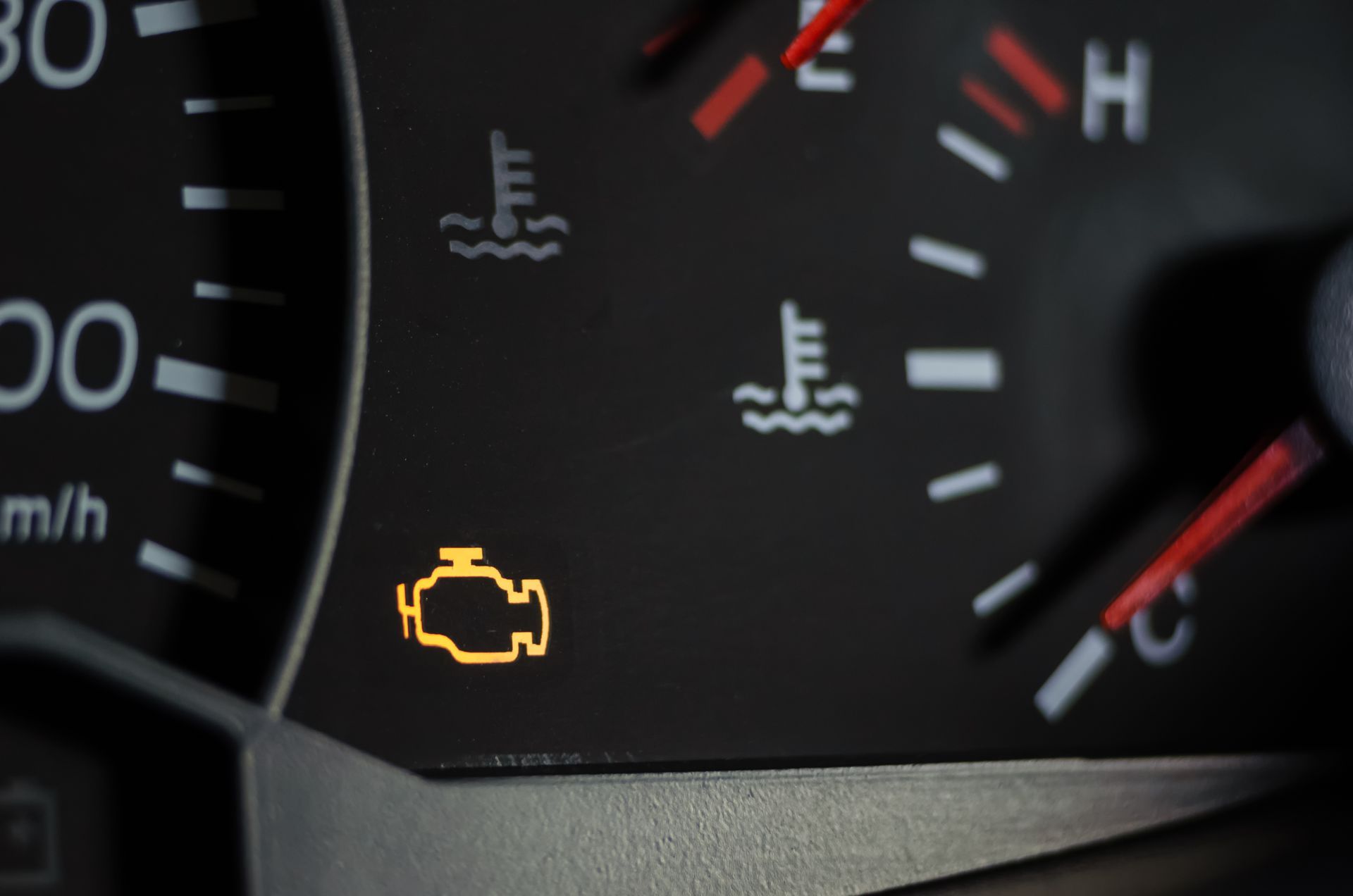
When your vehicle’s internal computer system finds an issue with your engine or any other important part, it warns you by turning on the check engine light . This warning is indicated by the engine symbol on your dashboard lighting up red, orange, amber, or yellow. The cause of an illuminated engine light might be as simple as a loose gas cap or as complex as a damaged engine component. However, ignoring the problem can quickly lead to expensive repairs or inevitable vehicle failure.Here are five of the most common causes of a check engine light and what you should do in the event that it comes on. 5 Common Culprits of a Check Engine Light 1. Loose Gas Cap Your gas cap helps to maintain the right pressure in your vehicle’s fuel delivery system and prevents vapors from escaping the fuel tank. When it is loose or missing, it may trigger a check engine light. 2. Oxygen Sensor Failure If your vehicle’s oxygen sensor is malfunctioning, it won’t be able to determine how much oxygen is present in the exhaust, which means your vehicle won’t be able to deliver the correct amount of gasoline to your engine. If your engine is otherwise healthy, your vehicle may still continue to operate, but with fuel efficiency decreased by 40 percent , all while releasing harmful emissions into the environment. 3. Battery Issues A faulty or incorrectly installed battery can prevent your vehicle from starting and trigger a check engine light. Generally, vehicle batteries need to be replaced every three to five years, but exposure to harsh driving conditions and severe weather can negatively affect their lifespan. 4. Vacuum Hose Leaks Age and exposure to extreme temperatures can cause vacuum hoses to dry out and crack, resulting in leaks. When this happens, the engine warning light may turn on. In addition, if your vehicle’s idle speed suddenly rises or stays at an irregularly high RPM , a vacuum hose leak may be to blame. 5. Damaged Spark Plugs A vehicle’s ignition system sends electric currents to spark plugs, which in turn send those currents directly to the combustion chamber, lighting the fuel-air mixture responsible for driving the vehicle. When a spark plug fails, it may cause the engine to misfire, reduce gas mileage, cause rough idling, and trigger the check engine light. What to Do When Your Check Engine Light Turns On While some check engine light issues can be resolved with simple troubleshooting, several others may be signs of serious engine failure and call for meticulous and in-depth professional repairs. If your gas cap, battery, and fuel levels are fine, but your engine warning light is still on, it’s worth consulting with a professional mechanic to avoid the risk of causing further damage to your vehicle and putting yourself in danger. High-Quality Check Engine Light Diagnostics and Repair in Ada, OK At Weldon’s Auto Center, we provide top-rated, professional check engine light services in Ada, OK that get down to the root cause of your vehicle’s issues. With advanced diagnostic and repair services performed by certified and experienced master mechanics, our shop is second to none when it comes to servicing all of your automotive repair needs in Ada, OK.To schedule an appointment or for more tips on avoiding check engine light issues, contact us today!
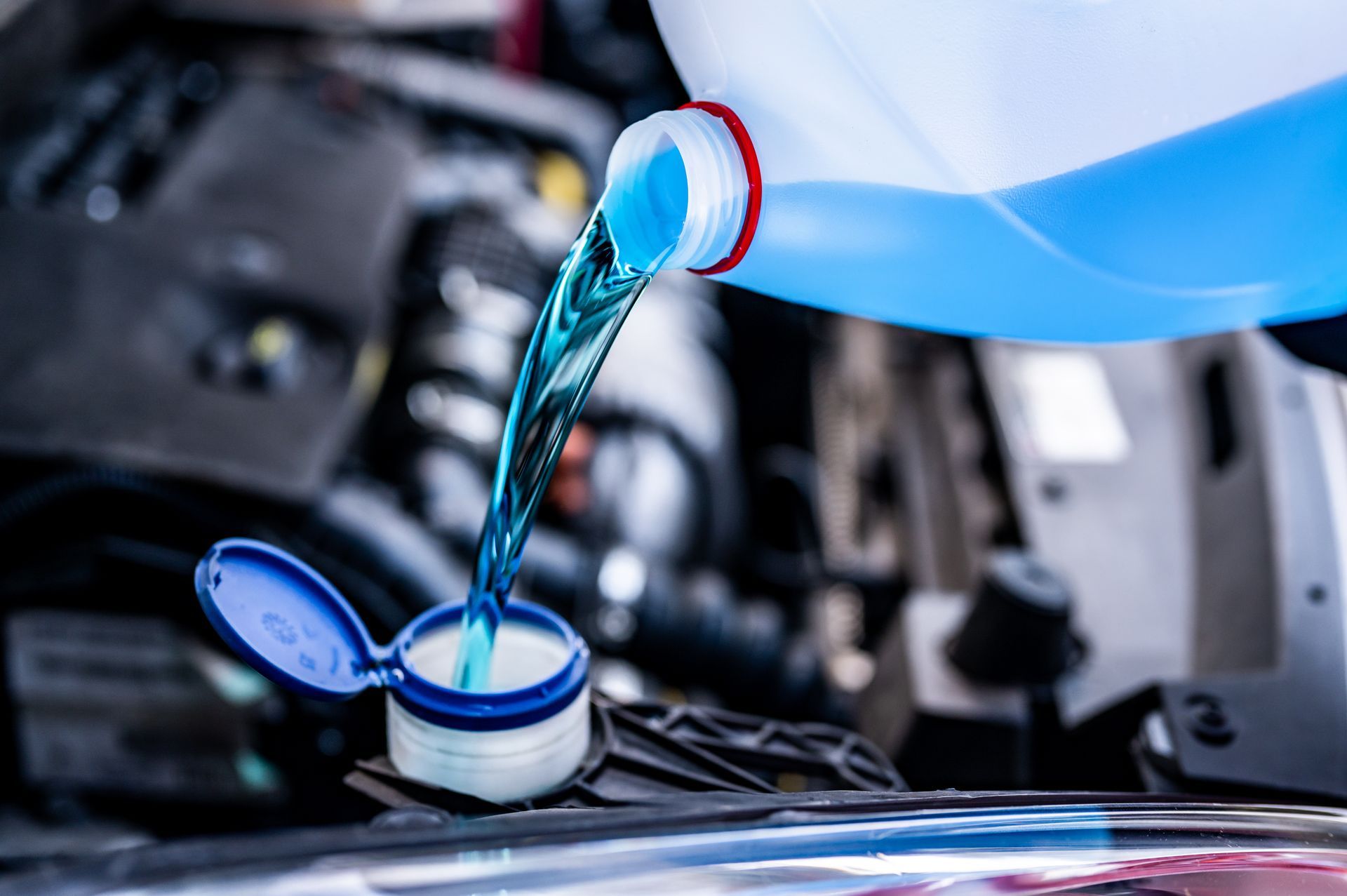
What do you know about coolant? Much like oil, it needs to have its own maintenance schedule to keep it from damaging your car. Do you know when is the best time to change your engine coolant? Most cars on the road need theirs changed every 30,000 miles but this varies by model. If you’re a car owner you should know when your car needs its coolant changed, why, and how. Most auto dealers will sell you a long-life coolant which is a 50/50 mix of antifreeze and water to protect the radiator from hot summers and freezing winters. This mix allows you to keep driving with almost no regular maintenance because now the car has longer intervals between changes. Many auto shops will recommend a fluid change every 30,000-50,000 miles. Depending on what kind of coolant you use and what your mechanic recommends, this number can change. So, why do you need it changed? Well, coolant will deteriorate over time. Unlike oil, it is a little harder to test by appearances. Your car can even tell you that the reservoir is sufficiently full but an antifreeze flush might be needed. When deteriorating, coolant can become acidic and cause corrosion. The corrosion will overtake the radiator, thermostat, and your heating/cooling system. This can prove fatal for your engine because if it stops your car from maintaining proper temperatures you will have an overheating problem. Determining when your coolant is outdated is difficult which is why you should take your car in to get tested by a professional. Allow a mechanic to look for signs of corrosion, rust, and test your heating/cooling system. If they find corrosion and deterioration, the antifreeze coolant should be changed. Your mechanic will also go ahead and flush your coolant to remove contaminants. If you need a trusted car expert consider bringing your car into Weldon’s. The mechanics at Weldon’s can ensure that your car is serviced and maintained to keep you and your car in top condition. If you need help with any of these tips, feel free to ask us for help. If you would like to make an appointment, Call (580) 279-0907 today.



